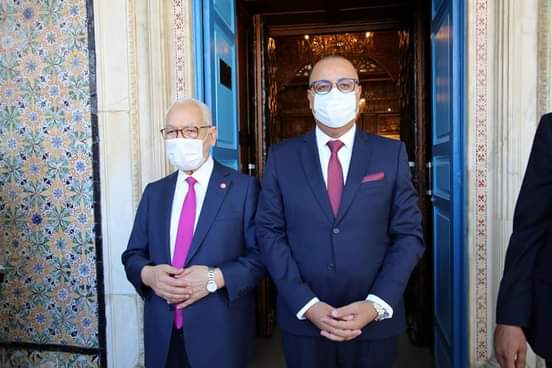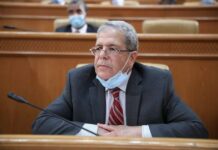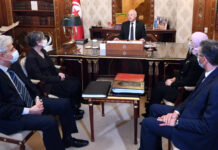The Democratic Bloc, consisting of 38 deputies, called for the resignation of Parliament Speaker Rached Ghannouchi and Prime Minister Hichem Mechichi, and presented a political map to get out of the crisis.
The head of the Democratic Bloc, Mohamed Ammar, considered, on Monday, June 21, on his Facebook page, that Tunisia is currently living “its darkest economic, social, health and political crises,” proposing, “a roadmap for political actors to overcome these crises.”
Mechichi’s resignation topped the roadmap presented by the head of the bloc, suggesting three names for President Kais Saied to choose among them, “the person best able to form a mini-political government whose priority is the economy and health.”
As for the second most prominent demands in the proposed map, it is the resignation of Parliament Speaker Rachid Ghannouchi, provided that Parliament devote itself during the coming period to “amending the electoral and political system.”
Calls for Early Elections
Last week, the Tunisian General Labor Union called for overcoming the political and constitutional crisis as soon as possible or for early elections.
The Ennahda Movement, through its official spokesman, Fathi Al-Ayadi, also confirmed that it accepts this proposal, along with the President of the Republic, who was quoted by the Secretary-General of the Labor Organization, Noureddine Taboubi, in an interview with the “Al-Hiwar Al-Tunisi” channel, on Friday evening, June 18, 2021, that he accepts holding early presidential and legislative elections. He also intends to hold a referendum on the entire political system and make amendments to the 1959 constitution.
For his part, constitutional law researcher Rabeh Al-Kharaifi considered in a previous statement to “JDD Tunisie” that holding elections in the same circumstances, with the same players and the legal framework, will inevitably lead to the worst, namely tampering, as he put it.
He said that the upcoming parliamentary scene would be worse if the conditions for candidacy for legislative elections and the regulation of the Associations Law, which had become a major player, were not tightened, he said.











